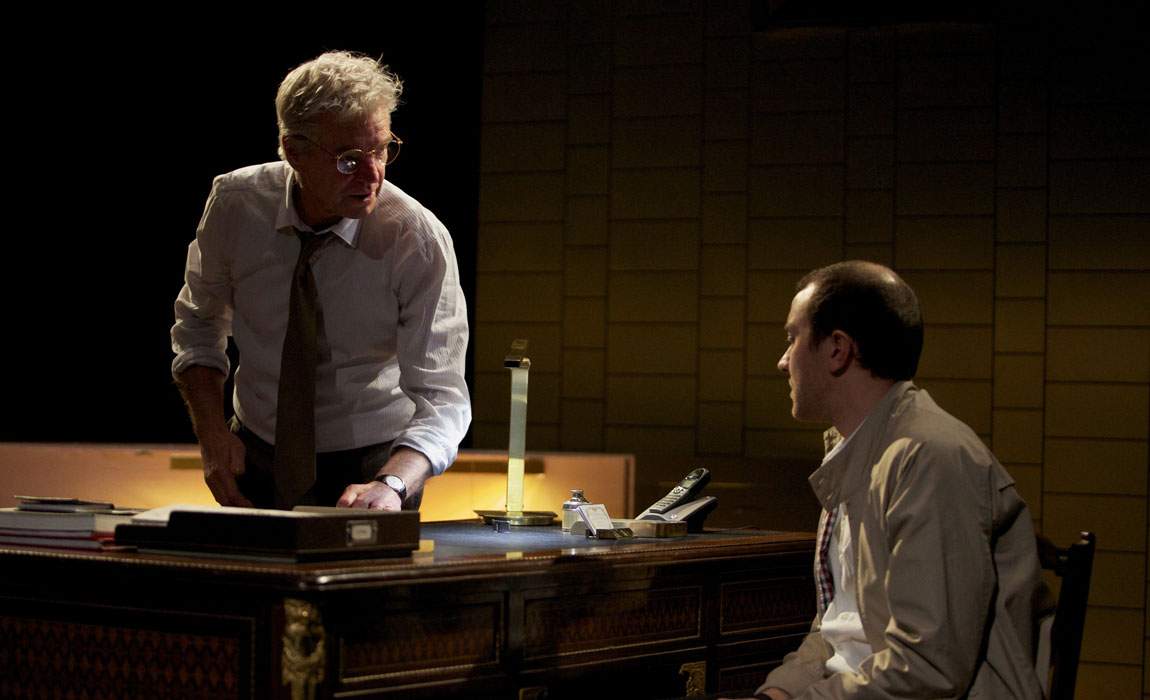Moving Parts
Colin Friels and Josh McConville light up a play that comes from outside the theatre world.
Overview
Memory plays are often tedious, for the simple reason that nothing much happens. It takes a skilled writer to set plot lines, past and present, on courses that dramatically impact each other. Moving Parts, currently playing at NIDA's Parade Theatre, is ad man David Nobay's first play and he has not avoided the pitfalls of the form.
The play is set in a luxury watch store on London's Bond Street. A man (Josh McConville) enters, ostensibly to buy a £20,000 watch from the cranky old salesman (Colin Friels), only to reveal himself as the salesman's estranged son, seeking reconciliation. This, and each dramatic turn thereafter, is so predictable that Nobay seems to be playing double bluff with us. He's not. His use of the watch as a poetic symbol is quaint to start off with and then becomes tedious. The salesman's eloquent descriptions of time and precision are incongruous with his otherwise rough character a reformed, racist alcoholic.
Nobay may not be winning with his text but he has surrounded himself with a great creative team. What the text lacks in structure and originality, the production makes up for with quality. Sound designer Jack Ladder gives us beautiful, melancholy piano music; set designer Steven Jones-Evans has created a sumptuous, carpeted set with sage tiled walls and glowing pink display cabinets; and Russell Boyd's lighting design sheds a dusky warmth over the space. Steve Rogers' direction is clean and simple, using stillness to good effect in a number of scenes.
The father and son combo of Friels and McConville is very easy to watch their pace and connection is upbeat and together they make light work of some grotesquely poetic lines. Friels is returning to familiar, washed up salesman territory here after his portrayal of Willie Loman in Simon Stone's production of Death of a Salesman. In Moving Parts he displays that same wonderful fragility, but here Loman's idealism is replaced with bitterness.
Friels' wandering London accent is inoffensive until McConville mimics him for a few lines with a superior accent. McConville matches Friels' performance and the power play over his father as a paying customer is fun to watch, especially when he orders him to "do your fucking job and seduce me". It may be a pertinent imperative for the production in general a bit more theatrical wooing from these advertising pros could be in order. It's a pleasant show, but no seduction.





